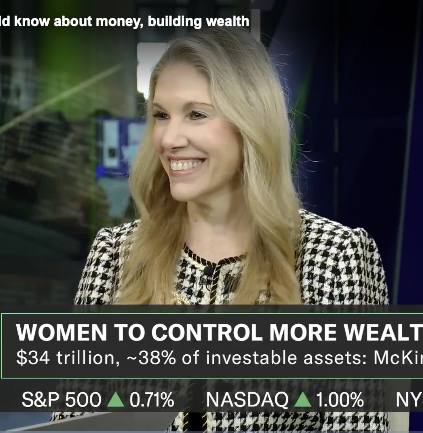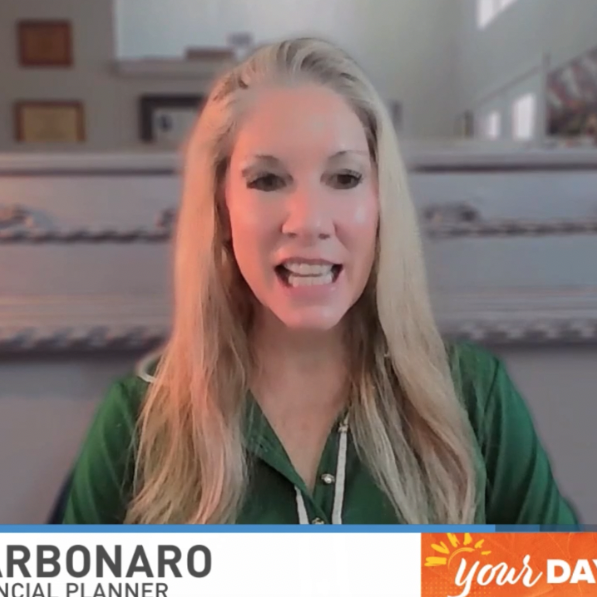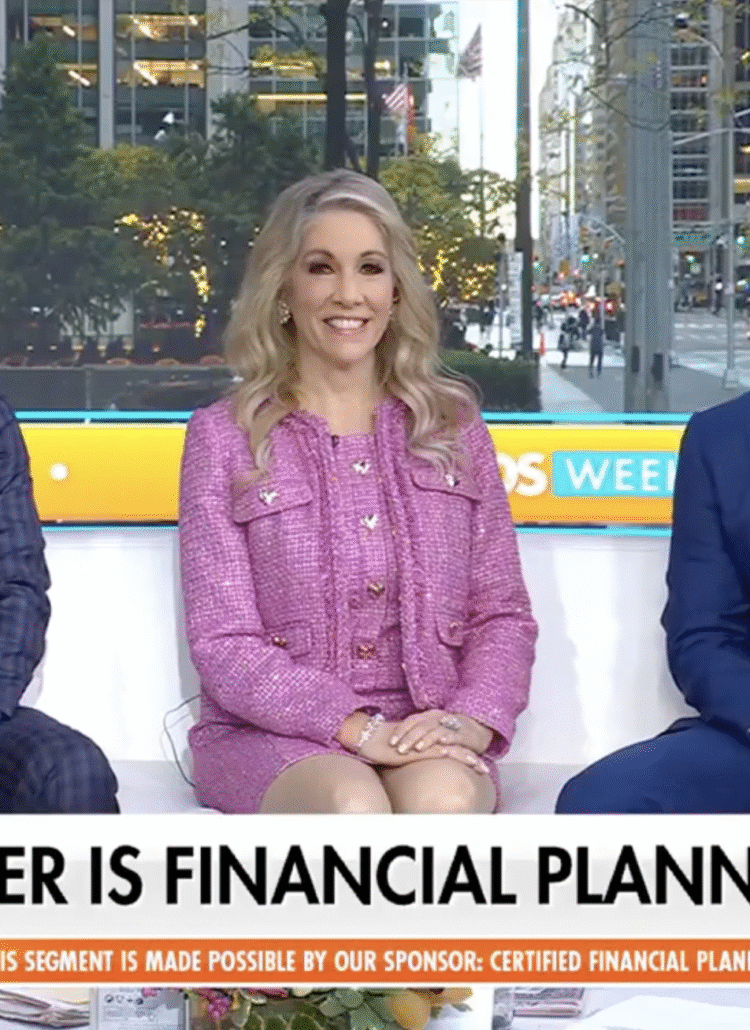June 29, 2023
Older Americans are becoming increasingly less prepared for retirement. Cary Carbonaro, Advisors Capital Management Senior Vice President and Director of Women and Wealth, joins Yahoo Finance Live’s Rachelle Akuffo in tackling what workers can do to better save for retirement, emphasizing the overall importance of Social Security and investing for women.
Video Transcript
[AUDIO LOGO]
RACHELLE AKUFFO: Retirement insecurity has become a real issue to navigate. Inflation in grocery stores, health insurance, and worries about social security funds running out, I mean, those are just some of the worries that adults are thinking about when they’re retiring and are trying to consider them. Now data from advisors capital management says more than half of retirees only rely on social security and that more than 50% of people are unprepared for retirement.
Let’s bring in Cary Carbonaro, Advisors capital management senior vice president and director of women and health, to talk some more about this data. Good to see you here on the show.
CARY CARBONARO: Thank you.
RACHELLE AKUFFO: Pretty disturbing data that we’re seeing about how unprepared people are. Why are they so unprepared? What’s happening here?
CARY CARBONARO: There’s so many reasons. Let’s go back to 1978. 1978 is when 401 (k) came into play. And that’s when the government shifted the onus– or really the employers shifted the onus from the employers to the employees and said we’re not doing pensions anymore, now you’re responsible. So that’s when 401(k) started. And literally the numbers went like this for 401(k) and like this for pensions.
And so it’s– so now there’s nobody has pensions. And that’s a big reason for retirement insecurity. And then also the fact that not everybody saving in their 401(k). So there’s so much more to that. But I’m going to– ask my next question.
RACHELLE AKUFFO: OK. So we’re coming up on July, which is national retirement month here. In terms of steps that people can take to see how prepared they are, to see how much money they’re actually going to need to be able to not just sort of survive during retirement, but actually enjoy their life, how should they be looking at this?
CARY CARBONARO: OK. So I tell everybody I want them to save literally as much as they possibly can, right? So the most you can save is what you should be putting away. I always tell people that they should be maxing out their 401(k), right? And if you can’t max it out, start somewhere. It doesn’t matter if you start small and then you up it every single year even 1%, 1%, 1%, 1%. And before you know it, you’ll be maxing out.
And if people are at least maxing out their 401(k), that’s a really great start for retirement. Because we do have the retirement insecurity of social security, which you know, believe it or not, more than half of Americans are actually relying on social security for their retirement, which I don’t know how they’re living on that because it’s really not enough, especially with what’s going on with double digit inflation, which we haven’t seen since the ’80s. So if you’re relying on social security, you need to not rely on it because you need to have other savings like retirement savings and also outside savings.
So I say the more you can save the better. And you really need to start tightening your budget, look at your budget, know your numbers, what’s coming in, what’s going out, so you can figure out how to get some extra money within that budget.
RACHELLE AKUFFO: And so how should you think about sort of resetting as you’re sort of in your 20s versus your 30s, your 40s, and then closest to retirement?
CARY CARBONARO: So in your 20s, it’s so funny because you have so much time till retirement, right? So you’re in your 20s, maybe retiring in your 60s. So that’s 40 something years. Start now. It’s the best time because you’ve got all that time to grow your money. And you don’t even feel it.
I remember my stepson said to me when he first got his first paycheck, and he said, you know, I can’t afford to put in money in my 401(k). And I said you can’t afford not to put money in your 401(k). I will kill you. And so he did his 3%. And then he upped it every year. And then by the time he was in his ’30s, he has a six figure nest egg. And that’s what happens. It’s just literally a matter of setting it and forgetting it with your retirement savings.
So that’s what you should start in your 20s. And when you’re in your 30s, same thing. Obviously you might have more priorities because you have more things pulling at you like, you know, home, children. But you still have to find that money for a retirement. And what happens is once you start saving, and you have it on autopilot, you don’t even miss it because it’s just automatically happening. And it’s just behavioral finance where it just happens. And it’s just all of a sudden it’s building and building and building over time now.
Of course, in your 20s and 30s, you also have to be invested in the stock market and not keeping it in cash or bonds or something safer because you really need to be a higher risk allocation when you’re younger. And as you get older, you kind of pare it down over time. But it’s a great thing. It’s– you have 40 years to go to save for retirement. And then you’re going to be in retirement for 40 years. So that’s what I always tell people you got 40 years to save for 40 years after.
RACHELLE AKUFFO: Maybe I should threaten my nine-year-old. Maybe that’s the way to get her to start taking her saving more seriously. I do want to ask you, though, in terms of like a lifetime of earning potential, drastically different for men than it is for women. What should they sort of be factoring in extra when they’re trying to plan for retirement?
CARY CARBONARO: So it’s so interesting. I’m so glad you asked me that question. So women have so many strikes against them when it comes to retirement because they earn less, they make less, they’ve got– because of the pay wage gap. They’re out of the workforce because of caregiving and either having children or taking care of parents.
So there’s so many issues and women live longer. So you know, you’ve got all these strikes against you. And women are less likely to be invested in the stock market because they think it’s risky. So what I tell women is you need more money, not less money. You need to save you so much more than you think you need to save. And you really need to get with a certified financial planner who can really give you a guide map and roadmap for your financial future to get you where you want to go. And because you’re going to live so long that, you know– we outlive the men. And so I want you to be able to have a great retirement, women. So please start saving.
RACHELLE AKUFFO: Definitely. And I do want to ask you because depending on where you live, I mean, your taxes are different, and I mean some of the data shows best and worst places to live for retirement, Virginia, Florida, Colorado topping the list. Among some of the worst, Mississippi, New Jersey, Kentucky. Should people be thinking about either relocating, or how should they be viewing where they live in terms of how they retire? What sort of things should be on that checklist?
CARY CARBONARO: It’s so important. I tell people all the time, you know, it’s not what you make, it’s what you keep. So if you are in a high tax state, you are paying for that. And I can actually run with. My clients we run calculations. What if you move to Florida, what if you moved here, what if you left New York and New Jersey, what is it going to look like? How much is that going to add to your net worth over your lifetime?
And obviously with remote work, it’s definitely helping things way more than it has in the past. But it’s a big calculation of a choice of where you’re going to live. It can mean millions and millions of dollars for your net worth.
RACHELLE AKUFFO: And for people who are trying to balance, you know, they have inflation concerns, they’re trying to save, trying to pay off debt, retirement for some people can just seem like the last thing they even want to be thinking of as a priority, what message would you tell them?
CARY CARBONARO: I would tell them you cannot borrow for retirement. Think about that, right? You can borrow for current needs. You can borrow for future needs. You can borrow for your house. You can borrow for college. You can’t borrow for retirement. So it is up to you to save.
And then as far as social security goes, you know, the current numbers are that social security is going to be bankrupt by 2033, which is pretty scary, because it’s not that far away. And obviously things need to change there because we’re going to have to keep upping the retirement age. And the payments are going to get lower and lower. And I know that they were high this year because of the cola– because of inflation. But that’s not going to continue we hope. And you have to own your own financial future because I don’t think the government is going to take care of it for you. You all need to own it for yourselves.
RACHELLE AKUFFO: Certainly lots of great insights. Very helpful tips there as well. A big thank you there to Advisors capital management senior vice president and director of women and wealth Cary Carbonaro. Great having you on.
CARY CARBONARO: Thank you so much.




